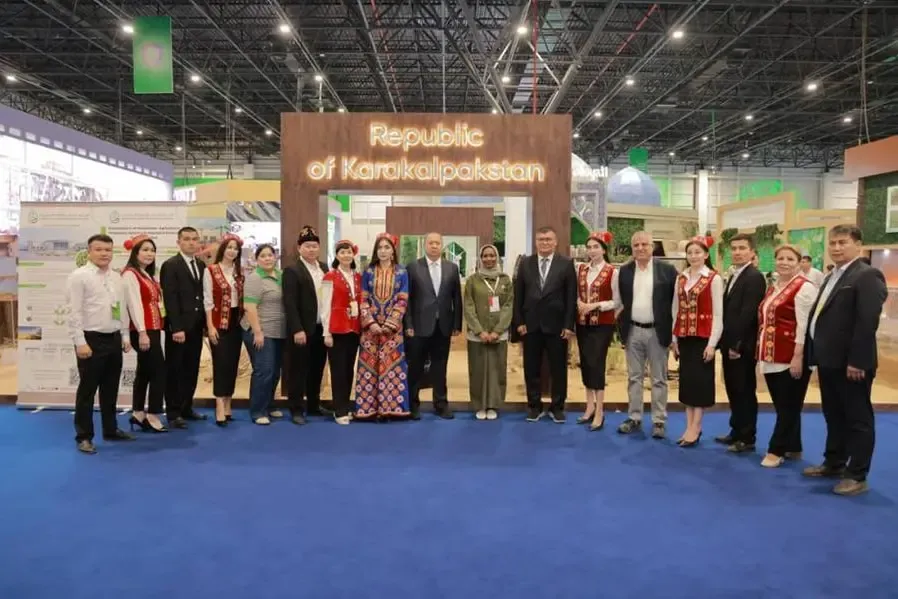Dubai, UAE: The International Center for Biosaline Agriculture (ICBA) concluded a high impact and strategically coordinated presence at Eco Expo Central Asia 2025 in Tashkent, Uzbekistan. As the region’s foremost platform for environmental innovation, the expo brought together government leaders, scientists, and development institutions to advance collaborative climate action and sustainable solutions for fragile environments.
As part of the broader recognition of ICBA’s contributions, the government of Uzbekistan awarded Dr. Al Zaabi, Director General of ICBA, the “Tabiat Himoyachisi” (Defender of Nature) badge of honor which was established by Resolution No. 443 of the Cabinet of Ministers of Uzbekistan. The badge is a national honor awarded to individuals who have demonstrated exceptional leadership in ecological restoration, scientific innovation, and the responsible use of natural resources.
The distinction was conferred by His Excellency Aziz Abdukhakimov, Minister of Ecology, Environmental Protection and Climate Change, acknowledging her leadership in environmental sustainability and climate-resilient agriculture
During the Eco Expo event, ICBA’s enaged in several high-level seminars organized in collaboration with the Ministries of Ecology of Uzbekistan and Kazakhstan and the International Innovation Center for the Aral Sea (IICAS) . The center focused through his participation on Reimagining Resilience via Biosaline Nexuses for a Climate-Smart Central Asia where professional regional experts in science and policy discussed how biosaline nexuses—integrated systems combining salt-tolerant crops, non-traditional water sources, clean energy, and circular bioeconomy practices—can contribute to land restoration, food security, and resilience in saline-affected regions.
Moreover, ICBA presented its success story in Karakalpakstan, highlighting how South–South cooperation, supported by the Abu Dhabi Fund for Development (ADFD), has enabled rehabilitation in salt-affected areas through the deployment of stress-tolerant crops, improved water infrastructure, and institutional capacity-building.
Throughout the three-day exhibition, ICBA hosted a dedicated booth in collaboration with IICAS, showcasing field-tested innovations in biosaline agriculture, remote sensing, salinity mapping, and sustainable land and water management. The booth served as a platform for knowledge exchange with policymakers, researchers, and regional development partners working to address climate challenges in arid and saline environments. ICBA received second place in the “Best Pavilion” category, in recognition of the booth’s scientific content, innovative design, and success in fostering regional engagement.
Eco Expo Central Asia is a catalyst for action,” said Dr. Tarifa Al Zaabi, Director General of ICBA. “Our participation is part of a broader effort to translate science into real-world solutions that benefit communities facing climate and resource pressures. We look forward to expanding regional collaborations, supporting national strategies, and scaling innovations that can secure the future of agriculture in saline and arid environments.”
ICBA’s presence at Eco Expo Central Asia 2025 reaffirmed its role as a trusted knowledge partner and scientific leader in sustainable agriculture. Through innovation, capacity-building, and regional collaboration, the center continues to support countries in navigating climate-related risks and enhancing resilience in resource-constrained environments.


